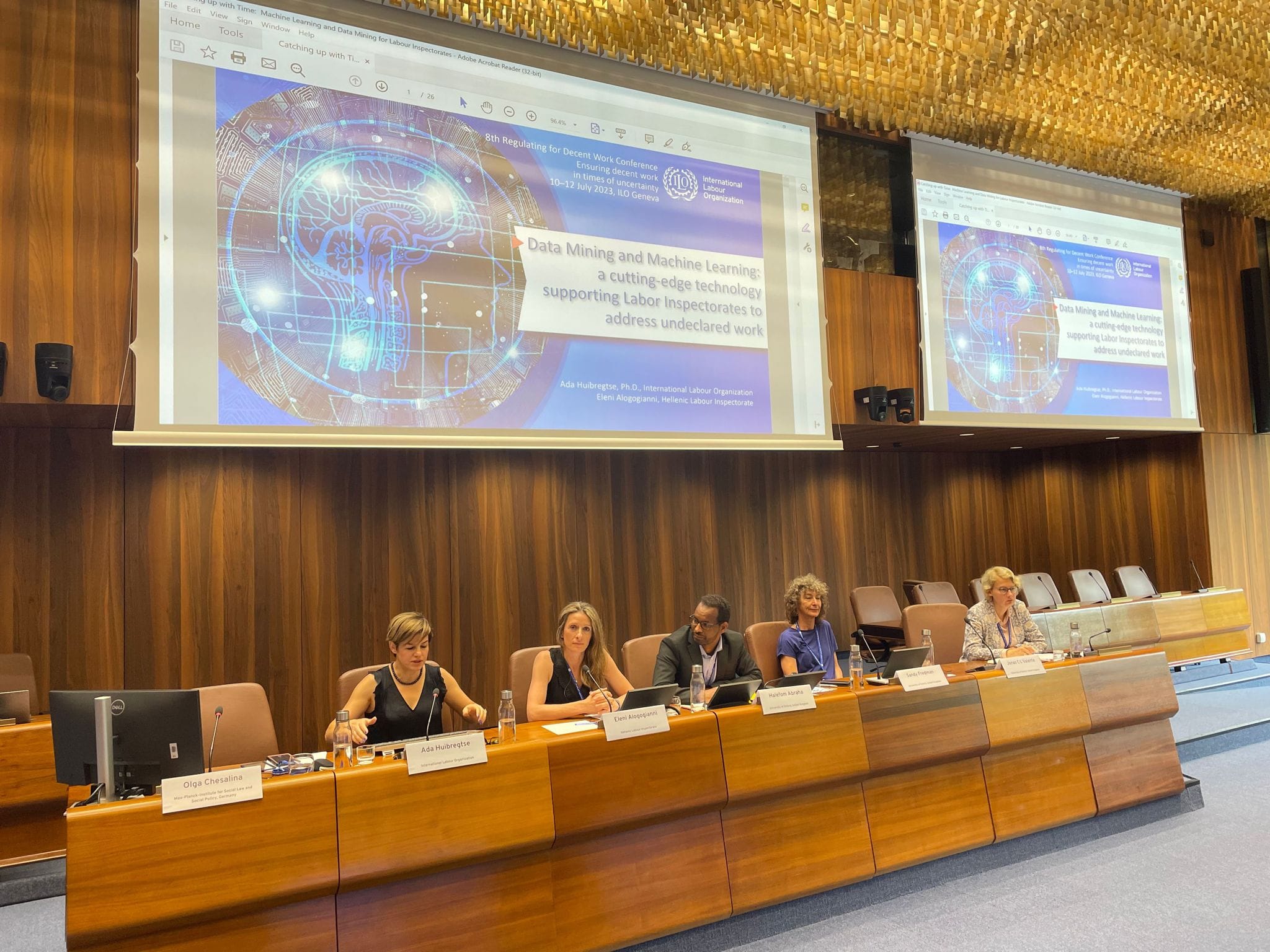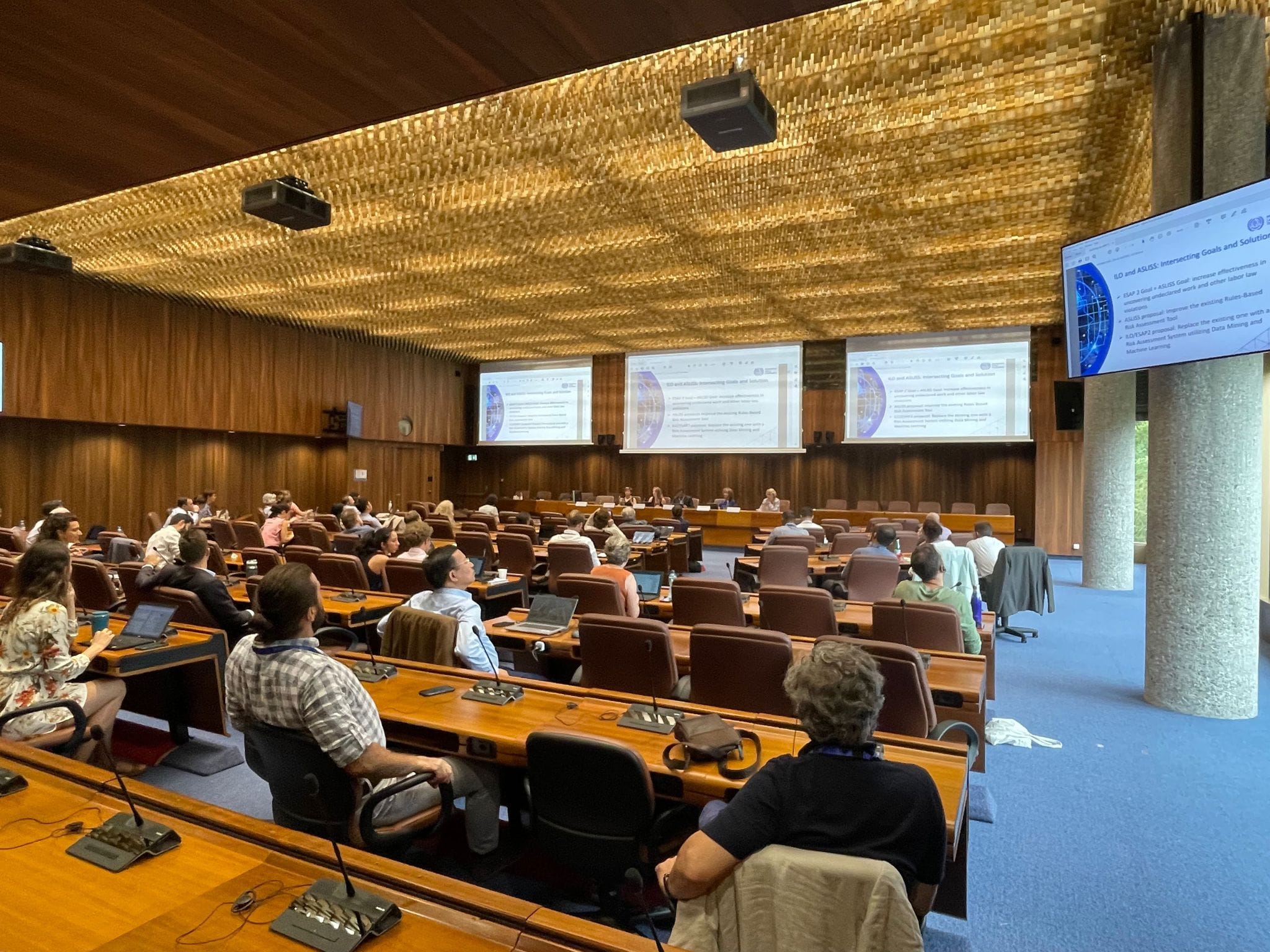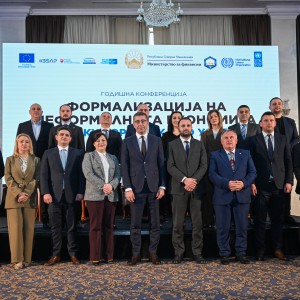News
21 July 2023 |News
ILO ESAP 2: Data Mining and Machine Learning: A Cutting-Edge Approach to Address Informal Work

Data Mining and Machine Learning: A Cutting-Edge Approach to Address Informal Work
Ada Huibregtse, Chief Technical Advisor at International Labour Organization (ILO), in charge of Employment and Social Affairs Platform (ESAP) 2, participated in the 8th Regulating for Decent Work Conference: Ensuring decent work in times of uncertainty. The Conference took place in Geneva, Switzerland, from July 10 to 12, 2023.
The conference focused on areas such as macroeconomic policies, trade and global value chains, institutions for decent work and social protection, and regulatory innovation. Researchers from various fields and representing hundreds of academic institutions and universities spanning dozens of countries were in attendance and presented their research and proposed new ideas and policies.
In a well-attended session “Innovation in Strategies and Research: Examples from Platform Work and Informal Work”, Huibregtse and Eleni Alogogianni from the Hellenic Labour Inspectorate presented their work on Data Mining and Machine Learning: A Cutting-Edge Approach to Address Informal Work (Presentation can be downloaded here). This research has been done within the ESAP 2, a project funded by the European Union and implemented by the ILO.
Their work revealed the superior predictive power of the Data Mining and Machine Learning (DM&ML) approaches compared to the manually configured red-flag approaches in targeting businesses for inspections and in increasing labor inspection’s efficiency to uncover undeclared work. Unlike manually set red-flag methods, the DM&ML ones increase the predictive accuracy by, first, automatically considering variables that traditional paradigms of who, why, and how one engages in undeclared work or other labor law violations will omit; and second, identifying changes in behavioral patterns significantly faster than experts or practitioners.
In their study, Huibregtse and Alogogianni demonstrated the application of a sophisticated and interpretable machine learning method, the Associative Classification, in the process of planning actions to face undeclared work and other labor law violations of the Albanian State labor Inspectorate and Social Services. Interpretable machine learning produces ‘white-box’ classifiers presenting their results in explainable terms to humans, improving the users’ domain knowledge and their acceptability and trust in the models’ outputs. In the research application, actual data of around 12.6 thousand onsite inspection visits performed around the country during the years of 2021-2022 were used. Data mining models used in two ways: first, as an effective prediction tool for classifying risky employers, hence contributing to scheduling targeted onsite visits to deal with specific labor law violations; second, as a knowledge provision tool explaining to users how the predictions are made and revealing the most dominating employers’ attribute patterns associated with the various labor law violations, thus enhancing the ability of the inspectors identifying these violations. As a result, Huibregtse and Alogogianni proved that the proposed methodology using DM&ML approaches is highly more effective in several ways than the current inspection visits’ selection methods using red-flag indicators employed by the authority.
The Albanian Labour Inspectorate and Social Services (ASLISS) is currently developing a Risk Assessment System based on a DM&ML approach within the framework of the ESAP 2 project. This system will be live in fall 2023 making the ASLISS one of the first labour inspectorates in the world to utilize advance machine learning techniques in their daily work.

Data Mining and Machine Learning: A Cutting-Edge Approach to Address Informal Work





